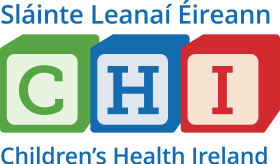Offering Carrier testing for Galactosemia to Irish Traveller women attending the Rotunda Hospital
There is a high incidence of galactosemia amongst Travellers in Ireland (1 in 484). The protein in breast and formula milk can make babies with Galactosemia very ill, very quickly. A practice, developed decades ago, means that all Traveller women are precluded from breast feeding and or regular bottle formula feeds until testing reveals whether the baby has Galactosemia or not.
13 Eanáir 2025
Gach suíomh CHI
News
Traveller women who do want to breast feed are obliged to wait for up to three days before starting. The first days of breast feeding are crucial in establishing successful milk flow and the poor breastfeeding rates (2%) amongst Traveller women is likely to be due in part to this practice. This is supported by a recent report published by Pavee Point Traveller and Roma Centre. This practice, set up with the best intentions, is at odds with the HSE’s commitment to diversity, equity and inclusivity. It is contra to existing policy frameworks, including the National Maternity Strategy and the HSE Breastfeeding Action Plan 2016 – 2021.
If Traveller women were offered genetic carrier testing during pregnancy, only those whose babies remained at high risk would need to observe the current practice.
We propose a proof of concept pilot study in collaboration with CHI at Crumlin and CHI at Temple street, Pavee Point and the Rotunda hospital to offer carrier testing to Traveller women at booking. Women who test negative can choose to feed their babies whichever way they like, by breast feeding or using regular infant formula.
Our aims are to see if antenatal genetic testing is acceptable by women from the Irish Traveller population and how those that opt for testing view the process afterwards. If it is successful we will lobby for its introduction nationally.
Click here to watch the video
